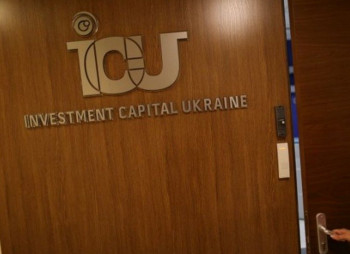Why do offshore jurisdictions take a hit today and what are the concerns of Ukrainian medium and large business owners?
Discussion of issues related to such abbreviations as BEPS, CFC, Substance has long moved beyond investment forums and law firms private counselling. Today, large and medium businesses, all those companies that was present in any foreign jurisdiction, discus it. There is no secret that many owners in the business structure have related foreign companies.
For reference: in 2013, the Organization for Economic Cooperation and Development (OECD) suggested the development of recommendations for solving the problem of minimizing taxation by international groups of companies. With the active support of the G-20 countries, the recommendations were issued in the form of the BEPS Plan (Action Plan on Base Erosion and Profit Shifting). Work on the Plan was completed in 2015, as a result of which 15 paragraphs, steps, tasks needed to solve the problem were developed, which are suggested for implementation into the national laws of all countries.
These companies operate according to the rules of the country of their registration, despite the fact that their ultimate beneficial owners are Ukrainian businessmen. The company pays taxes abroad, since tax rates in many countries are lower than in Ukraine. Thus, profit tax rate in Ukraine is 18%, in Hungary - 9%, and in offshore jurisdictions - 0%. Thus, Ukrainian business owners try to pay taxes in the country of registration of a foreign company at lower rates than in Ukraine.
A BEPS plan consists of 15 steps. Each step is a description of a certain tax issue and suggested solutions. Ukraine joined the plan in January 2017 and pledged to accomplish 4 steps, but in 2018 a decision was made to implement 8 steps. In the same year, a draft law was introduced related to the implementation of the BEPS Plan in Ukrainian legislation (the law draft “Concerning the introduction of amendments to Tax Code of Ukraine to implement the Plan on the prevention of the tax base erosion and profit shifting”), which is now being actively discussed and considered in the relevant committees of the Verkhovna Rada of Ukraine.
The main objective of the BEPS plan is to build clear relations between countries and stop using foreign companies in order to avoid or minimize taxes.
The first major change that is expected in Ukraine in the very near future is the introduction of the Controlled Foreign Companies (CFC) rule. This step obliges the residents of our country to pay profit taxes in Ukraine on the income of foreign companies under their control. Now, states want to know all the information about their citizens-taxpayers who control foreign companies and, if they reduce taxes artificially, to charge them extra. The main principle of the CFC rule is the same everywhere: CFC profit is taxed by the residence state of a person controlling the company, in proportion to his/her share in it. If the company operates actually in a foreign jurisdiction, it is exempt from paying additional tax in Ukraine. In this regard, the company needs to confirm Substance (economic presence) and the fact of operating business in a foreign jurisdiction (provide fixed costs for maintaining the office and “real” employees, show cash flows for real contracts and their execution, etc.).
Who will be affected by the innovations after the adoption of the appropriate amendments to the tax code?
A company is considered a Controlled Foreign Company if it is controlled by such persons:
- an individual (shareholder) of a company with a stock of shares of 50% or more (or a shareholder with a stock of shares of 25% or more, if the company still has Ukrainian shareholders and all of them own 50% or more of the company’s shares);
- a person who actually controls a foreign company, namely: gives instructions to the executive bodies of the company, carries out operations with a bank account and is able to block operations, is indicated as a beneficiary when opening a bank account;
- a person who has a letter of attorney with a wide range of enforcement powers, with a term of issuance of more than 1 year and the terms of the letter of attorney do not set the obligation to coordinate actions with the corporate bodies of the company.
If a resident of Ukraine meets at least one of the criteria listed above, he/she will need to: firstly, declare all of his/her CFCs in the Ukrainian tax authorities (this condition is obligatory even if the foreign company has no profit or does not actually operate); secondly, to declare the amount of adjusted profits of these companies.
Adjusted profit is a pretax profit for the accounting period. Such profit is added to the total income of the person who controls the CFC (in proportion to his/her participation share in the company). It is understood that a person who controls the CFC will have to pay a personal income tax in the scope of 18% of the gross income. If the controlled foreign company actually paid the tax in the country of its registration, then the amount of personal income tax payment in Ukraine will be adjusted to this amount.
For example, a citizen of Ukraine owns 100% of shares of a foreign company in Lithuania. For the reporting year, a foreign company earned a profit of $ 1,000 and paid corporate tax at a rate of 15% - $ 150. At the same time, in Ukraine the owner of the company declares data on profit earned in Lithuania in the amount of $ 1,000. Then the owner must pay personal income tax in Ukraine at the current rate of 18% of this sum - $ 180, but with the deduction of corporate tax already paid in Lithuania (180 minus 150). Thus, in Ukraine, the business owner must pay another $ 30 more.
CFC owners will be required to file declarations, and will be penalized for late filing of the report to the tax office. For example, for failure to file a declaration within 30 days after the last day of its filing, a penalty charge of 5 minimum wages for each calendar day of delay is stipulated. Take as an instance the minimum wage on January 1, 2020 - 4 732 UAH. Each day of failure will cost 23,660 UAH, and the amount of the penalty charge will be 733,460 UAH in a month. In addition, you can lose 25% of the profit in the form of a penalty charge for CFC hidden profit in the declaration. Also, we must not forget about the criminal liability for tax avoidance (Article 212 of the Criminal Code of Ukraine).
Thus, BEPS cancels the so-called “offshore zones” for withdrawing and saving profits, and all the income received by an individual must now be declared in the residence country of the business owner. As a result, it will no longer make sense to open foreign companies to optimize taxation only.
What other steps will Ukraine take in connection with the global struggle for transparency in business?
Together with the BEPS plan, Ukraine joined the Automatic Exchange of Information according to the Common Reporting Standard (CRS), and also signed and ratified the Multilateral Convention to Implement Tax Treaty Related Measures to Prevent Base Erosion and Profit Shifting (MLI).
The main point of the Automatic Exchange of Information is that banks and other financial institutions collect information on the flows of funds on personal accounts of individuals and corporate accounts of companies and give this information to the tax authorities of their country, which, in turn, send this information to the country of tax residence of such account owner. The main task of MLI is to control and return taxes to the country, in the case of using a tax agreement between the countries in order to evade taxation or to receive certain tax benefits.
The provisions of the first and second documents should be in force in Ukraine since 2020. Each of these provisions can significantly affect the Ukrainian business and its owners.
Such tool as Corporate Investment Fund (CIF) has been operating in Ukraine for quite a while and is often called an internal offshore. How relevant and common is it among Ukrainian business?
For many Ukrainian businessmen, Venture Corporate Investment Fund is an effective tool that they use actively to structure their businesses within the country. Corporate Investment Fund (CIF) is a joint investment institution that is created as a separate legal entity (joint-stock company).
Indeed, the main advantage of CIF is the ability to optimize the tax burden by legal means. The profit tax rate for CIF is 0%. According to the current Tax Code - means of co-investment are exempted from taxation, namely: funds and other assets of co-investment institution, income from assets operations, return on assets, and other income from the activities of the co-investment institution. In turn, the assets of CIF may include:
- funds (including foreign currency on current and deposit accounts)
- commercial and residential real estate
- corporate rights (including corporate rights of foreign companies)
- securities (including foreign securities)
- property rights and claims
- rental charges, lease payments, royalties and others.
For example, a CIF can buy any commercial property or other property and rent it out. Rental charge will be CIF income that is not subject to profit taxation.
This means that the owner of the Ukrainian holding can structure its assets in the country by registering them on a CIF, or carry out the necessary operations through CIF and thus not pay profit tax on the growth of its assets as long as the funds are in the CIF assets. And savings may be redirected to the operating business development or invest in new sector of a company group.
CIF members may be legal entities, individuals both residents and non-residents of Ukraine. This means that such a tool as CIF can be affordable for not only large business, but also representatives of medium and small businesses.
What are the advantages and disadvantages of CIF for holdings?
As it was mentioned earlier, the main advantage of CIF is the tax preferences provided by the state.
First, CIF funds are exempt from profit tax while they are in CIF assets. Secondly, the CIF doesn’t pay value added tax (VAT) as long as it carries out transactions that are not subject to VAT.
The issue of taxation will arise when the business owner decides to withdraw capital from CIF assets. Frankly speaking, CIF has its advantages even in this case. So, having decided to pay dividends to an individual member of CIF, he/she will receive a personal income tax rate of 9% (instead of 18%) plus a military levy of 1.5%.
Tell us in more details who can use CIF for own benefit?
CIF is a universal tool for structuring any business. The instruments available to CIF can be useful in any holding structure, because the list of CIF assets is quite wide.
Today, CIF is widely used by holdings to structure cash flow within a group of companies by providing loans through CIFs to their subsidiaries, and the interest on these loans is borne by the expenses of their subsidiaries.
At the same time, there are no restrictions on the industry involved in business; it can be production, development, trade, financial, IT, agricultural companies and others. Over the past few years, CIFs have also been actively used by residential real estate developers.
In as much as the easing of the state’s foreign exchange policy, the CIF can be considered as a tool for investing abroad. Thus, the National Bank of Ukraine allows investing in foreign assets of legal entities in the amount of 2 million euros per year. Considering the fact that CIF is a legal entity, transactions of corporate rights and foreign company shares purchasing, including startups, can be carried out using CIF.
Despite Ukraine joining a number of initiatives related to the international struggle for transparency and openness in business operating, some conditions still remain the same. For example, work with such jurisdiction as Cyprus. As it was mentioned above, non-residents (i.e. Cyprus) may be CIF members. Since corporate income and dividends are exempted from taxation in Cyprus, there is still the opportunity to use the concessionary tax rate for the repatriation of dividends at a rate of 5% (of course, complying with certain terms and conditions). Thus, such dividends can be repatriated by applying CIF.
What about sustentation and administration conditions of CIF.
The corporate investment fund is managed by the asset management company (AMC) on the basis of the relevant agreement and receives a commission for CIF management.
The owners of large holdings make budgetary provisions for the creation of AMC and its integration into their business structure. This is not necessary, because the sustentation of AMC as a stock market professional requires significant costs, since it is necessary to fulfill a number of licensing requirements to the capital of the company, find and maintain certified personnel, etc. It is easier to turn to an external AMC and engage it in outsourcing for CIF handling. In this case, the AMC operations can be fully controlled, for this reason there are necessary leverages established by law.
It is also better to entrust CIF structuring to professionals, these may be AMCs, or consulting companies that have long been involved in supporting the CIFs registration process. In any case, before making such decisions, it is better to consult with professionals who will help you to structure and set up further steps to cope with your business task.






